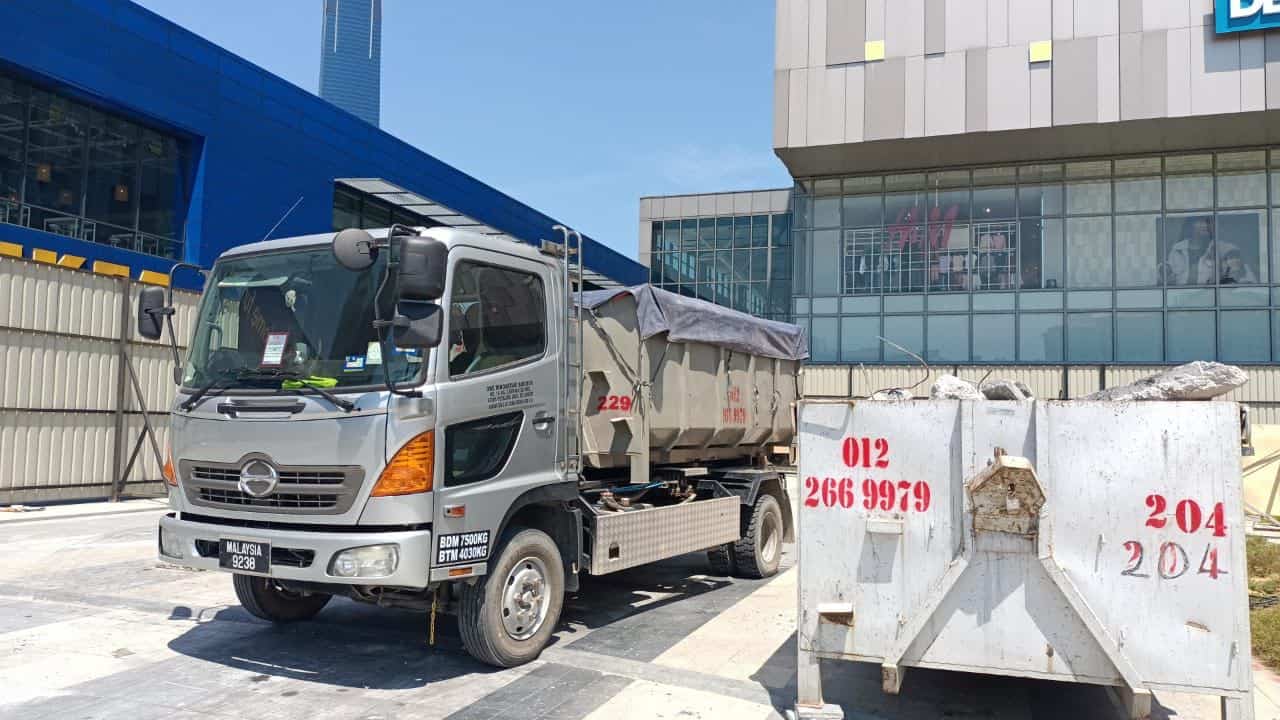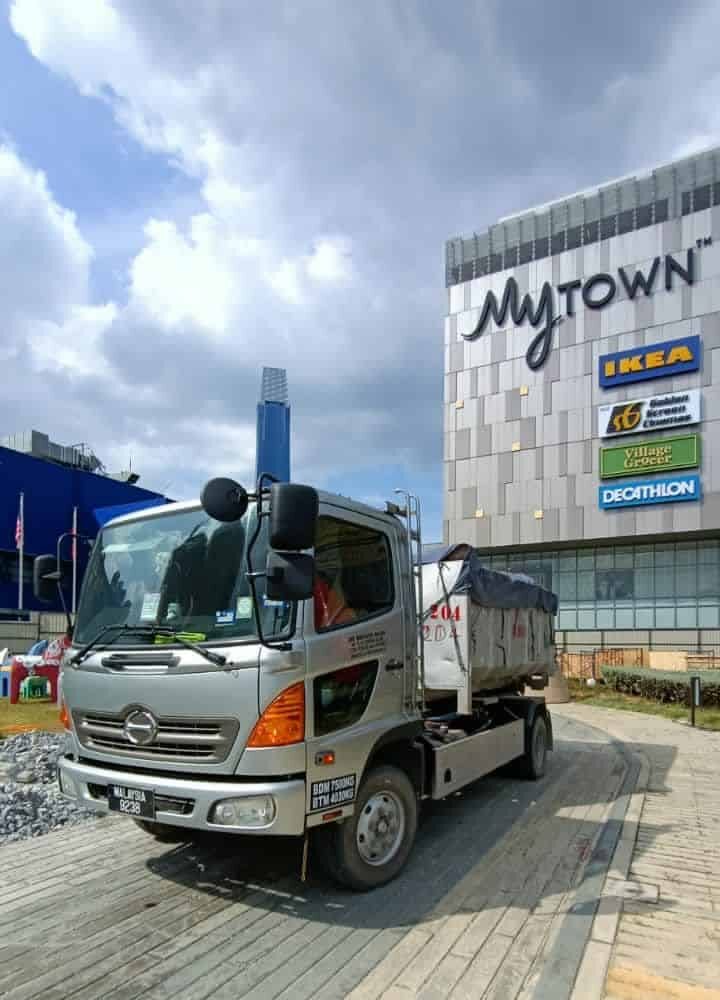RORO BIN RENTAL
Find The Right Size For Your Project

Small Roro Bin
Dimensions: 12′ (L) X 6′ (W) X 2.5′ (H)
Best Use: Heavy construction and demolition waste like concrete and soil.

Large Roro Bin
Dimensions: 12′ (L) X 6′ (W) X 4′ (H)
Best Use: Light-weight construction, industrial, commercial waste, furniture, household bulky waste, trees and etc.

Domestic Roro Bin
Dimensions: 12′ (L) X 6′ (W) X 4′ (H) with roof
Best Use: Domestic food waste (Organic waste).

Extra Giant Roro Bin
Dimensions: 16′ (L) X 8′ (W) X 6′ (H)
Best Use: Light-weight construction, industrial, commercial waste, furniture, household bulky waste, trees and etc.

Giant Roro Bin
Dimensions: 14′ (L) X 7′ (W) X 5.5′ (H)
Best Use: Light-weight construction, industrial, commercial waste, furniture, household bulky waste, trees and etc.
WHAT MAKES US DIFFERENT ?

Value Price

Express Service

Licensed Under Local Authorities

Quick Scheduling
TESTIMONIALS
OUR CLIENTS







PROJECT REFERENCE









Construction Waste Management
In the world of construction, handling waste is as crucial as laying the first brick. Effective waste management on a construction site isn’t just about keeping things tidy; it’s a strategy that can save money, conserve resources, and protect the environment. Let’s dive deep into the ins and outs of construction waste management services, exploring how they can make a real difference.
What is Construction Waste?
Construction waste encompasses materials that are discarded during the construction, renovation, or demolition of buildings and infrastructure.
Types of Construction Waste
- Concrete and Rubble: Often in large quantities, these are remnants of foundational work.
- Wood: Comes from framing, flooring, and other structures.
- Metals: Aluminum, steel, and copper waste can accumulate on-site.
- Plastics: Includes packaging materials, pipes, and insulation.
- Hazardous Waste: Paints, solvents, and certain chemicals.
Why Construction Waste Management is Essential
Environmental Benefits
Proper waste management reduces the amount of waste that ends up in landfills, thus preserving natural resources. Reusing and recycling materials help reduce the demand for new resources.
Economic Benefits
When waste is managed efficiently, you can lower project costs by reducing the need to purchase new materials and minimizing disposal fees. Recycling can even generate revenue if the materials have value.
Regulatory Compliance
Many regions have laws governing waste disposal. Non-compliance can result in hefty fines and project delays, so effective waste management ensures you stay on the right side of the law.
Key Challenges in Construction Waste Management
Common Waste Management Issues on Construction Sites
Common challenges include lack of proper disposal facilities, inadequate waste segregation, and poor training of staff. These issues can lead to increased costs, safety hazards, and environmental degradation.
Impact of Poor Waste Management on Projects and the Environment
Improper waste handling can cause contamination, pollution, and even lead to hazardous conditions on-site. This affects both the environment and the safety of the construction team.
Strategies for Effective Construction Waste Management
Reducing Waste at the Source
The best way to manage waste is to create less of it in the first place.
Planning for Efficient Use of Resources
By mapping out what materials are needed and avoiding over-ordering, you can prevent excess waste.
Choosing Sustainable Materials
Sustainable materials are often more durable and have a longer life cycle, which reduces waste over time.
Reusing Materials
How to Identify Reusable Materials
Items like bricks, lumber, and fixtures can often be used in new ways, either on the same project or elsewhere.
On-Site and Off-Site Reuse Opportunities
Materials that cannot be reused on-site might be donated or sold for use in other projects, reducing overall waste.
Recycling Waste
The Role of Recycling in Waste Reduction
Recycling reduces the volume of waste sent to landfills and enables the construction industry to conserve natural resources.
Materials That Can Be Recycled
Commonly recycled materials include metals, plastics, glass, and cardboard.
Disposal of Waste
Safe and Legal Disposal Practices
Disposing of hazardous materials safely is essential to protect both people and the environment.
Working with Licensed Waste Disposal Services
A licensed disposal service will follow local regulations and ensure waste is handled appropriately.
The Role of Construction Waste Management Services
What a Construction Waste Management Service Offers
A professional waste management service can provide all-in-one solutions to handle waste efficiently.
Site Assessment and Waste Audit
They assess the site to understand what types of waste will be generated and create a plan tailored to the project.
On-Site Waste Collection and Segregation
Waste management services help keep waste organized, sorted, and safely stored until it can be recycled or disposed of.
Benefits of Professional Construction Waste Management Services
Increased Efficiency and Reduced Project Costs
Outsourcing waste management allows the construction team to focus on their work without distractions, leading to a smoother project flow.
Enhanced Environmental Responsibility
By partnering with a waste management service, construction projects can adopt greener practices and reduce their environmental impact.
Improved Compliance with Regulations
Professionals ensure all waste is disposed of according to local and federal regulations, saving you from fines and legal issues.
Steps to Implement an Effective Construction Waste Management Plan
Developing a Waste Management Plan
Start with a plan outlining your waste reduction, reuse, and disposal strategies.
Training Your Team on Waste Management Practices
Educate your team on proper disposal methods, recycling practices, and how to minimize waste.
Monitoring and Improving Waste Management Efforts
Regularly assess your waste management plan to identify areas for improvement.
Case Studies of Effective Construction Waste Management
Successful Examples in Sustainable Construction Projects
Several companies have demonstrated how strategic waste management can lead to successful, sustainable construction projects. Learning from these examples can provide valuable insights.
Why Construction Waste Management is Key to Sustainable Building
Construction waste management isn’t just an obligation; it’s an opportunity to make a positive impact on both the environment and your project’s bottom line. By partnering with professional services, adhering to regulations, and implementing efficient strategies, construction projects can lead the way in sustainable practices.


